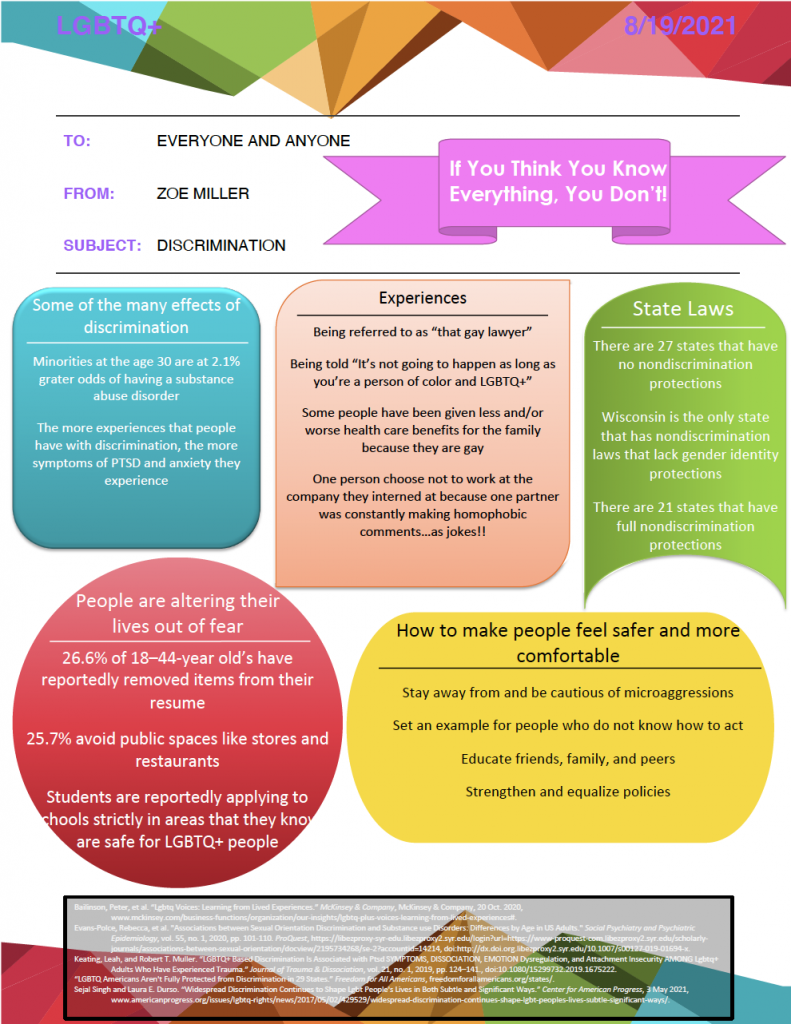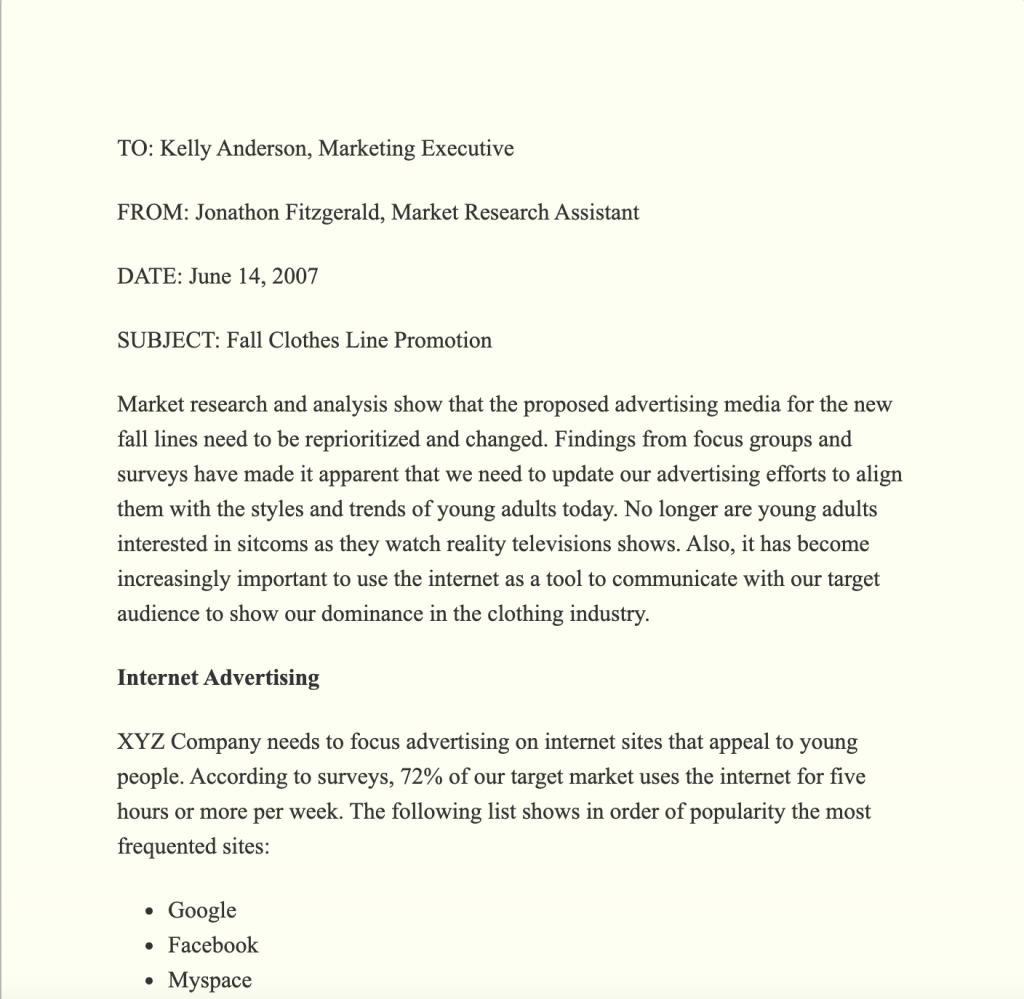Originally I was going to research discrimination against people who are disabled both physically and mentally. However, I decided to instead do research on discrimination against people who are apart of the LGBTQ+ community. The reason I decided to change my topic was because I have disabilities that while are nothing like what most people are discriminated for, I do have a hard time doing what comes easily to other people. I choose to stay away from that topic because I wanted to learn about something that I did not know as much about. Finding articles about LGBTQ+ discrimination was unfortunately easy. I choose articles that each had something different to contribute to my research and my portfolio. All six articles, while discussing the same concept and had overarching ideas and themes, had something different to explain about discrimination. I applied different source finding skills like web of knowledge, subject searching, and backlink checker to help me find some of my favorite sources that ended up in my portfolio.I learned a lot about my topic. I learned that there is so much I do not know about it which is leading me to think that there is a lot about other topics that I think I know a lot about and don’t. I also learned more productive ways to search for sources, when I started researching the way I always have I was having a hard time finding articles that were both relevant and would contribute important information to my portfolio. After learning how to use different ways to search for them, the sources almost fell into my lap. Not to mention, my favorite and most interesting topics came from the different ways that I complicated my research.
I learned that writing is more than an essay. I also learned that reporting is some of the most important writing that anyone could do. The way that I, and my peers, delivered the research that we find could have a big impact on the way in which people understood our information and viewed us as a writer. I learned that there are more ways to share what I’ve learned than what I thought. I can put my writing into whatever form or genre that I want it to be in and which ever way that I feel will be the most productive and effective. I learned that giving and receiving feedback are one of the most important things about writing. Receiving and using feedback is a productive way to engage readers and hear what changes should be made that may have been looked over. That also taught me how to figure out what to prioritize. Another set of eyes will tell you what you’re missing, what is the most important, and what is maybe not necessary to your point. I learned that the most important thing is who you are writing to and how they are going to feel about what you say and how you say it. when reporting on research, it’s important to be sensitive and sympathetic especially when reporting on topics that are as important as discrimination.
I learned a few very important things that I plan to take with me from this project and this course. I did learn how to search for sources much more productively than in the past. Something that I think is extremely important that I learned is that the way we phrase things can be very important when writing and especially when writing about a sensitive topic. I caught myself a few times writing something and then thinking “wait, is this the politically correct way to say this and will people take offense to it?”. This helped me realize that what I say and how I say it can make a big impact no matter what I am talking about.



